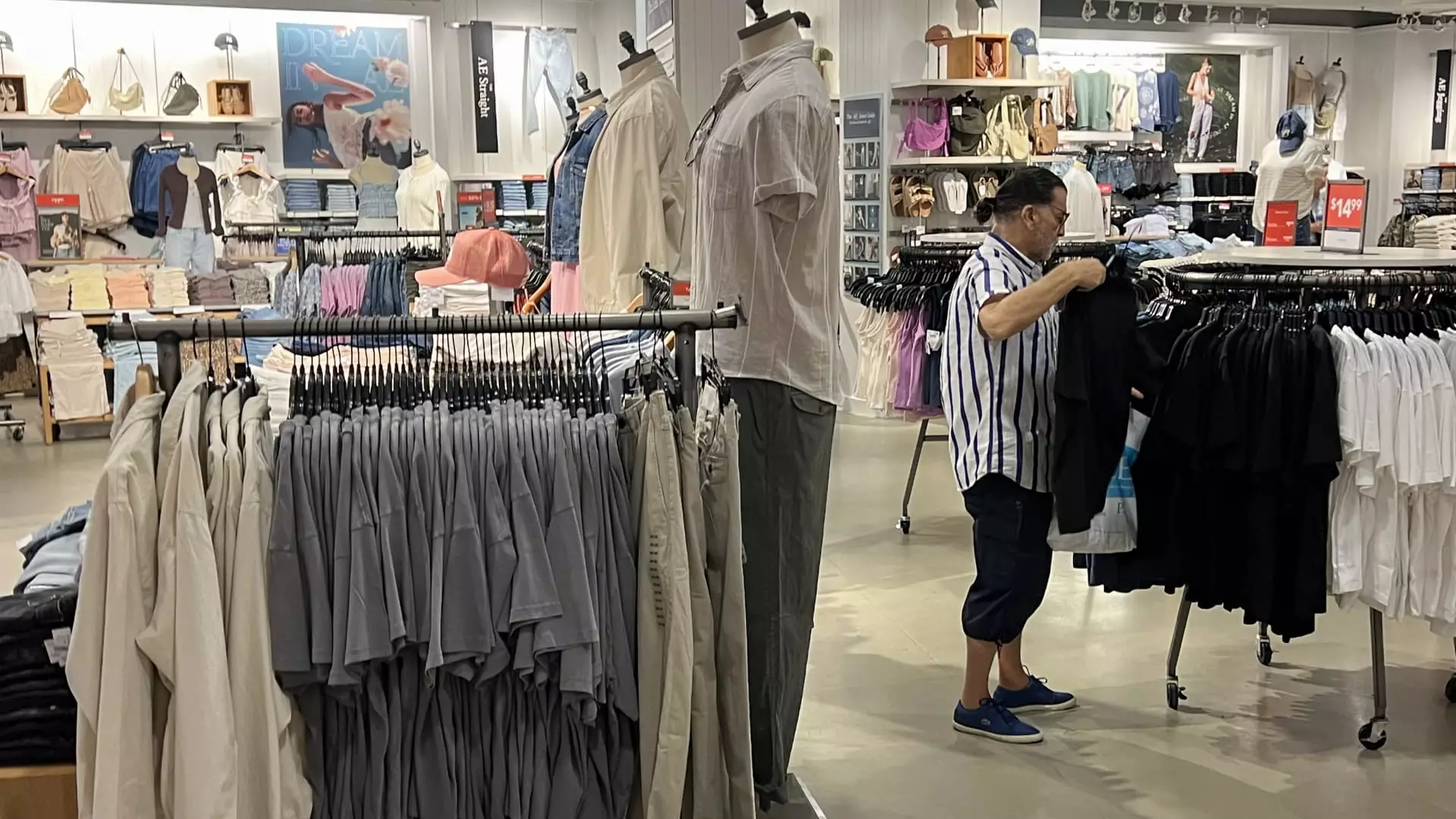In the aftermath of a chaotic bout of panic buying, a noticeable shift in consumer behavior is emerging across the United States. Recent studies reveal that a vast majority of Americans are not only prepared to scale back their spending but are increasingly adopting a minimalist lifestyle. The rhetoric has even reached the White House, where President Donald Trump remarked on NBC’s “Meet the Press,” suggesting that Americans should reconsider their material needs. His statement, “They don’t need to have 250 pencils, they can have five,” may have been intended as humor, but it underscores a significant cultural shift towards moderation and financial prudence.
This turn towards frugality isn’t merely a fleeting trend driven by temporary shortages; it’s a fundamental reaction to a broader economic landscape fraught with uncertainty. The findings from a study by Intuit Credit Karma reveal that 83% of consumers are contemplating cutting back on non-essential expenditures should their financial situations deteriorate. A further study by Bankrate underscores the anxiety in the air, showing that over half of respondents plan to curtail spending on travel and dining this year. The response to rising costs isn’t just about budgeting; it represents a shift in values that places essential needs above fleeting desires.
The Backbone of Our Economy: Consumer Spending
Consumer spending has long been cited as the backbone of the U.S. economy, crucial for ongoing growth and stability. Jack Kleinhenz, chief economist at the National Retail Federation, noted that despite the pervasive feeling of pessimism—largely fueled by the nation’s divisive tariff policies—consumer expenditures had largely remained robust until now. However, the atmosphere has shifted, and experts agree that we are at a crucial “pivot point.” It’s as if the economy is holding its breath, waiting for consumers to either jump back into spending or pull the brakes entirely.
The concern stems from a tangible fear that consumer confidence is waning. The Conference Board’s expectations index sank to its lowest point since 2011, while the University of Michigan’s consumer survey reported a historic low in sentiment. In an environment where inflation is consistently gnawing at purchasing power, coupled with the weight of escalating interest rates and student loan repayments, it’s understandable why so many conscientious consumers are starting to think twice before swiping their credit cards.
The Emotional Toll of Economic Pressure
It’s crucial to recognize how intimately intertwined economic anxiety is with the emotional state of the nation. According to Ted Rossman of Bankrate, a staggering 47% of Americans regularly contemplate their financial stability—a figure that speaks volumes about our collective psyche. The pressure of rising costs, coupled with the Trump administration’s revival of aggressive student loan collection, has forced many into a corner. When financial strain snowballs into record levels of credit card debt as households grapple with making ends meet, the result is a populace on edge.
Consequently, as anxiety mounts, individuals are beginning to internalize their fears into their daily routines. Many Americans may find solace in living with less, not merely as a reaction to economic conditions but as a choice that aligns with a newfound appreciation for simplicity. The distressing reality is that amidst volatile economic factors, a wave of pragmatism is ushering in a lifestyle shift that could redefine consumer culture.
The Implications of a New Economic Mindset
As we stand at the crossroads of this evolving consumer landscape, it’s evident that the implications will reach beyond simple spending figures. This cultural phenomenon towards austerity may reshape businesses, influencing everything from retail strategies to marketing approaches. Brands that once thrived on excess may need to reinvent themselves in a marketplace that now rewards transparency, authenticity, and sustainability.
In a world dictated by rising costs and self-imposed limitations, an essential truth emerges: resilience is bred not from the accumulation of material goods but from the ability to adapt. As Americans grapple with economic pressures, they are likely to reinforce their identities through shared values of community, resilience, and a realistic approach to consumption. The sophisticated art of balancing needs versus wants may very well become the hallmark of a generation molded by economic uncertainty, ultimately leading to a richer understanding of what it truly means to live a fulfilling life.

